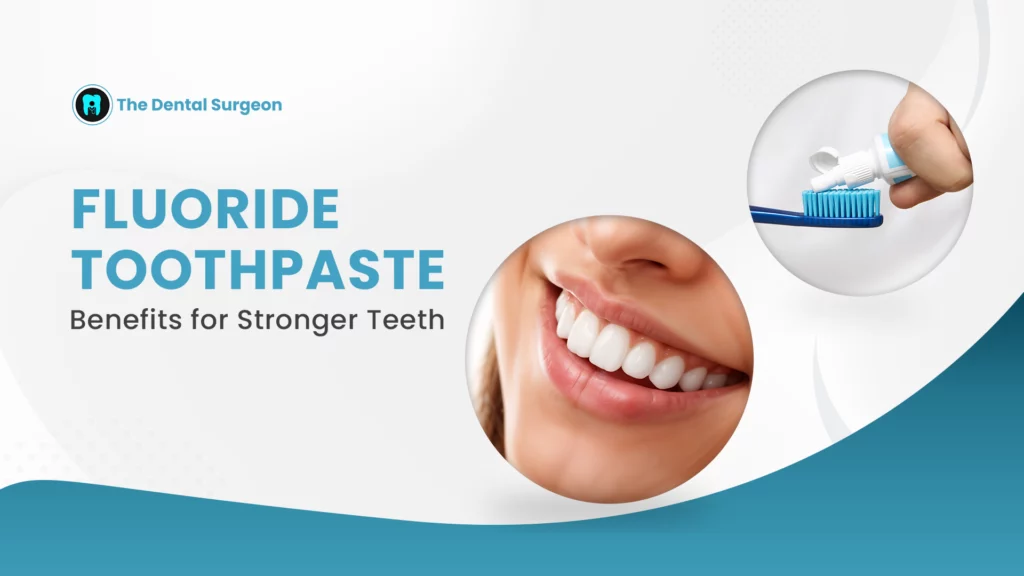Dental health is a fundamental aspect of overall well-being, and maintaining strong, healthy teeth requires proper care and preventive measures. One of the most widely recognized tools in oral hygiene is fluoride toothpaste. Fluoride, a naturally occurring mineral, has long been used in dental care to prevent cavities, strengthen enamel, and support long-term oral health. By incorporating fluoride toothpaste into daily routines, individuals can protect their teeth from decay, reduce sensitivity, and maintain a strong foundation for a healthy smile.
Replacing missing teeth with dental implants provides a durable, natural-looking solution for restoring your smile. Dental implants integrate with the jawbone, offering strength and stability similar to real teeth. They enhance appearance, improve chewing ability, and prevent bone loss, making them one of the best long-term dental restorations.
The Role of Tooth Enamel
Tooth enamel is the outermost layer of the teeth and serves as a protective barrier against physical damage, bacteria, and acidic foods and drinks. Despite being the hardest substance in the human body, enamel is susceptible to wear and demineralization over time. Acidic foods, sugary snacks, and improper oral hygiene can lead to enamel erosion, making teeth more vulnerable to cavities, sensitivity, and discoloration. Fluoride toothpaste works to reinforce enamel, helping it resist decay and maintain structural integrity.
How Fluoride Strengthens Teeth
Fluoride functions by enhancing the natural remineralization process of enamel. When teeth are exposed to acids produced by bacteria in the mouth, minerals such as calcium and phosphate are lost from the enamel surface—a process known as demineralization. Fluoride promotes the replacement of these minerals and forms a stronger, more acid-resistant compound called fluorapatite. This process not only repairs early damage but also makes teeth more resilient against future acid attacks, reducing the risk of cavities and enamel weakening.
Cavity Prevention and Decay Reduction
One of the primary benefits of fluoride toothpaste is its ability to prevent cavities. Tooth decay occurs when harmful bacteria metabolize sugars in the mouth, producing acids that erode enamel. By strengthening enamel and making it more resistant to acid, fluoride creates a protective barrier that inhibits the progression of decay. Regular brushing with fluoride toothpaste, combined with flossing and routine dental check-ups, is a highly effective strategy for reducing the incidence of cavities and promoting oral health.
Reducing Tooth Sensitivity
Enamel erosion and exposed dentin can lead to tooth sensitivity, causing discomfort when consuming hot, cold, or sweet foods and beverages. Fluoride toothpaste can help alleviate sensitivity by reinforcing the enamel layer and sealing microscopic tubules that connect to the inner nerves of teeth. By creating a stronger, more protective surface, fluoride reduces the intensity of nerve stimulation, providing relief and enhancing comfort during daily activities.
Scientific Evidence Supporting Fluoride Use
Extensive research has validated the effectiveness of fluoride in promoting oral health. Studies consistently show that communities with access to fluoridated toothpaste or water experience lower rates of dental caries. Clinical trials demonstrate that fluoride toothpaste strengthens enamel, reduces the progression of early cavities, and supports overall dental health. The widespread use of fluoride in toothpaste is supported by dental associations worldwide as a safe and effective method for maintaining strong teeth.
Incorporating Fluoride Toothpaste into Daily Routine
To maximize the benefits of fluoride toothpaste, it should be used consistently as part of a comprehensive oral hygiene routine. Dentists generally recommend brushing twice a day for two minutes, covering all tooth surfaces. Using a pea-sized amount of fluoride toothpaste ensures adequate exposure without excessive ingestion, particularly for children. Complementing brushing with daily flossing and regular dental check-ups further enhances oral health, creating a balanced approach that addresses both prevention and maintenance.
Fluoride Toothpaste for Children and Adults
Fluoride toothpaste is suitable for individuals of all ages, but usage guidelines may vary. For children, lower fluoride concentrations are recommended to prevent potential overexposure. Supervised brushing helps ensure that children benefit from fluoride while minimizing the risk of swallowing excess toothpaste. Adults can use standard fluoride toothpaste to maintain enamel strength, prevent cavities, and reduce sensitivity. Special formulations may also target whitening, tartar control, or gum health, providing additional benefits while maintaining fluoride’s protective effects.
Additional Benefits of Fluoride Toothpaste
Beyond cavity prevention and enamel strengthening, fluoride toothpaste offers other advantages for oral health. It can help inhibit the growth of harmful bacteria, reducing plaque formation and supporting gum health. Regular use of fluoride toothpaste may also help prevent minor discoloration and maintain a brighter smile by protecting the enamel surface. Fluoride’s multifaceted benefits make it a cornerstone of preventive dental care, promoting both function and aesthetics.
Choosing the Right Fluoride Toothpaste
When selecting a fluoride toothpaste, consider factors such as fluoride concentration, oral health needs, and personal preferences. Most adult toothpaste contains 1000 to 1500 parts per million (ppm) fluoride, while children’s toothpaste typically has lower concentrations. Specialty formulations may include ingredients for sensitivity, tartar control, or natural flavoring options. Choosing a reputable brand ensures the toothpaste meets safety standards and delivers the expected protective effects.
Combining Fluoride Toothpaste with Other Oral Care Practices
Fluoride toothpaste is most effective when used in conjunction with other oral care practices. Flossing removes plaque and food particles between teeth, while mouth rinses can provide additional protection against bacteria. Maintaining a balanced diet low in sugary foods and acidic beverages further supports enamel health. Regular dental visits allow for professional cleaning, monitoring of tooth health, and timely interventions when needed. Together, these practices create a comprehensive oral care routine that maximizes the benefits of fluoride toothpaste.
Safety and Considerations
Fluoride toothpaste is generally safe for daily use, but moderation is key, especially for children. Swallowing large amounts of fluoride can lead to dental fluorosis, a condition characterized by minor discoloration of enamel. Using the recommended amount of toothpaste, supervising young children during brushing, and storing toothpaste out of reach can prevent overexposure. Following dental professional guidance ensures that fluoride use remains safe and effective for all age groups.
Conclusion
Fluoride toothpaste is an essential tool in promoting oral health and preventing dental problems. By strengthening enamel, supporting natural remineralization, reducing sensitivity, and preventing cavities, it provides comprehensive benefits for individuals of all ages. Consistent use as part of a daily oral hygiene routine, combined with flossing, balanced nutrition, and regular dental visits, ensures optimal protection for teeth. With extensive scientific validation and a long history of effective use, fluoride toothpaste remains a cornerstone of preventive dental care, helping individuals maintain strong, healthy, and resilient teeth throughout their lives.






Leave a Reply